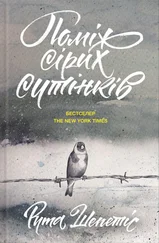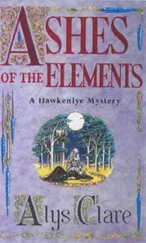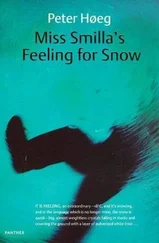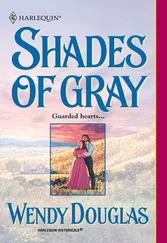My sincere gratitude to the Lapteviečiai organization and the following survivors from the Lithuanian deportations for spending time and sharing their experiences with me: Mrs. Irena Špakauskienė, Mr. Jonas Markauskas, Dr. Jonas Puodžius, Mrs. Rytė Merkytė, and Mr. Antanas Stasiškis.
Special thanks to Ms. Agnieška Narkevič for translation in Vilnius; Mrs. Dalia Kazlauskiene for sharing her husband’s stunning photos of Siberia with me; Nemunas Tour and the Zabaliunas family; Dr. Danute Gailiene, head of the Department of Clinical Psychology at the University of Vilnius in Lithuania, for meeting with me to answer all of my questions; Gintare Jakuboniene, director of the Memorial Department of the Center of Genocide and Resistance; Vilma Juozevičiūtė at the Museum of Genocide Victims; the Genocide and Resistance Research Center; Lithuanian Parliament; the Lithuanian Foundation; Rumšiškės Museum, and Karosta Prison in Latvia.
I am indebted to the following books that helped fill in the blanks: A Stolen Youth, a Stolen Homeland by Dalia Grinkevivičiūtė, Sentence: Siberia by Ann Lehtmets and Douglas Hoile, Leave Your Tears in Moscow by Barbara Armonas, Lithuanians in the Arctic by the Lapteviečiai Organization, and The Psychology of Extreme Traumatization by Dr. Danute Gailiene.
And finally, to the extended family of Jonas Šepetys. Thank you for the continued love and support you have always shown our family. Your patriotism, loyalty, and sacrifice shall never be forgotten
Ačiū labai!
• The story of the Baltic people’s genocide is a relatively unknown but important event in world history. Discuss why such an event could have so little awareness.
• Compare the story and themes found in Between Shades of Gray with that of the universally known The Diary of Anne Frank , including the distinctive qualities of each book, the use of art and journal to reveal history, and the settings.
• As the novel opens, Lina explains that though the signs were in place, she has little understanding that her parents had planned to attempt to escape Lithuania. What can be inferred about her understanding of the political climate in her country? Do you think her surprise is a typical reaction for a teen? Why or why not?
• Lina’s mother remains calm throughout the roundup of her family; how does her family benefit from this?
• When Jonas observes his mother smashing her beloved china and crystal before they depart their home, he asks her why she is destroying these items. She replies, “Because I love them so much.” Do you consider this an act of rebellion? In your opinion, is her reaction appropriate? In what ways is she trying to control the situation?
• As Lina’s family is first placed in the truck to take them to the trains, they meet the bald man who proclaims loudly, “We’re all going to die. We will surely die.” How does his presence affect the other prisoners? Consider and explain how Lina and her mother react to his rants. In what ways is Elena (Lina’s mother) sympathetic to his condition?
• Using textual examples, what are some of the specific ways Lina’s mother chooses to fight back against the NKVD?
• Being held prisoner on the train brings out the best and worst in some of the inhabitants. Consider and discuss some of the ways that individuals extend their assistance and support. How do their choices differ from those who are most unkind to others?
• Lina unflinchingly shares the nature of the condition in which she and the other prisoners are forced to live. What feelings does this candor evoke in you?
• How does the author use the embedded flashbacks to help readers understand why Lina’s family has been rounded up for punishment? Do you agree with the family’s choices? Why or why not?
• Though readers mostly learn about Kostas, Lina’s father, through her shared memories, a great deal can be understood about his character. In your opinion, what kind of man is he? Is he a good father? Use textual evidence to make your case.
• Why does Lina’s mother, Elena, pretend she doesn’t know her cousin Regina? What is she trying to accomplish? What can be gleaned about Elena from this encounter?
• Though Ona’s baby is a newborn, she is still considered an enemy of the state because of the actions of her father. What can be understood about the government’s policy?
• Upon arriving at the country train depot, the NKVD officers begin sorting the prisoners, and Lina asks, “Have you ever wondered what a human life is worth? That morning, my brother’s was worth a pocket watch.” How does this realization change Lina? In what ways does Lina better understand her mother’s actions and motivations?
• After Jonas is selected to be separated from his mother and sister, their mother is able to save his life by using her language skills and quick wit. What are some of the specific things she does to secure his safety?
• Discuss the character traits that allow Lina, Jonas, and Andrius to ultimately persevere. How are these characters similar to each other? In what ways are they different? Which character are you most like?
• Throughout the novel, Lina uses her passion for her art to remain connected to her family and the outside world. What are some of the specific ways she does this?
• What role does Andrius play in the story? In what ways is he a catalyst for the choices made by Lina and Jonas?
• Consider the consequences of not signing the documents which charge the prisoners of counterrevolutionary activities against the Soviet Union. Does Lina’s family make the right decision by refusing to “confess” these transgressions? Why or why not?
• Though Lina believes that Andrius and his mother are supplying information to the NKVD officers in exchange for food and shelter, she eventually learns that the arrangement comes at a great cost to his family. How does this knowledge of the lengths his mother goes to in order to keep him safe ultimately affect him? How does Lina’s understanding of these sacrifices reshape her perception of him? His mother?
• Throughout the novel, the bald man is cast as an unsympathetic character. How do his random acts of kindness help portray him as more than one dimensional? Cite specific instances from the story where you find evidence of this. Why might the author choose to include these examples?
• Using the phrase, “This is a story about…” supply five words to describe Between Shades of Gray. Explain your choices.
AN INTERVIEW WITH RUTA SEPETYS
Tell us about Between Shades of Gray .
The book is about Lina, a fifteen-year-old girl who is deported from Lithuania to Siberia in 1941. The story chronicles not only Lina’s fight for survival but also her struggle to retain faith in mankind in the midst of Stalin’s terror. It explores the miracle that is hope and courage and also the miraculous power of the human spirit.
What motivated you to write Between Shades of Gray ?
My grandfather was an officer in the Lithuanian army. While occupying Lithuania, Stalin was executing military officers, so my grandparents and father fled the country. Members of my grandfather’s family were deported to Siberia. I was not aware of the deportations until I went to Lithuania and met with relatives for the first time. I was shocked by their stories. In their fight against Hitler and the Nazis, the U.S. and Stalin were allies during World War II. After the war ended, many countries remained Soviet-occupied and couldn’t speak about the terrors they experienced. As a result, many people aren’t familiar with this part of history. I wanted to write a story that explained what happened in the Baltics and also bring attention to the crimes of Stalin.
Читать дальше
![Рута Шепетис Ashes in the Snow [aka Between Shades of Gray] обложка книги](/books/414915/ruta-shepetis-ashes-in-the-snow-aka-between-shades-cover.webp)











